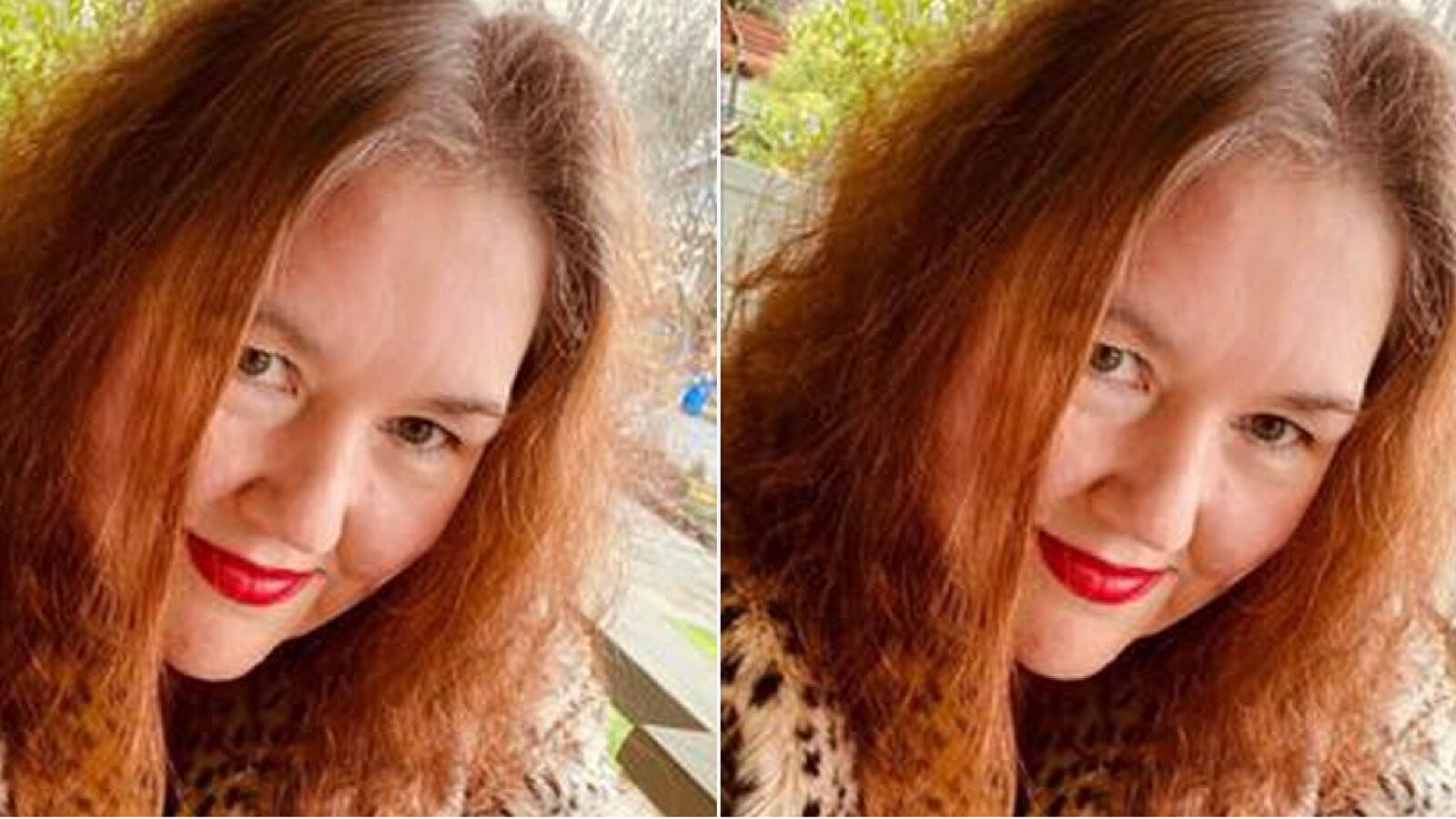Friends say June Knightly was a curious soul who strived to understand tightly-held beliefs and find common ground between different groups. Over the years, she was involved in the LGBTQ community and dedicated to fighting for racial justice.
That made her death over the weekend when a Portland, Oregon, protest was interrupted by gunfire all the more incomprehensible to those who knew her.
Known as “T-Rex” to friends, the 60-year-old activist didn’t just speak about social justice issues; she showed up when it mattered. “That’s something I deeply admire about her,” one friend, Kristan Knapp, told The Daily Beast. “That she acted on her convictions.”
On Saturday night, Knightly was volunteering at a protest against police violence when an armed homeowner allegedly confronted her small group focused on the event’s traffic control. A witness claims the man “immediately” fired bullets at the volunteers, though cops haven’t disclosed how the gunshots erupted. Knightly was killed and five others were injured. Police say one person returned the unidentified man’s gunfire.
According to The Oregonian, Knightly was shot in the head and died during the violent encounter at Normandale Park, where demonstrators planned to protest the deaths of Black people killed by police—including Amir Locke, a 22-year-old fatally shot by Minneapolis cops during a no-knock warrant this month, and Patrick Kimmons, killed by Portland officers in 2018.
Knightly often shared anti-racism posts on social media, as well as information on providing food and clothing donations for unsheltered city residents. “Be Kind, don’t lie, help others, and have empathy, and #BLACKLIVESMATTER,” her Facebook bio stated.
Kathleen Saadat, a friend of Knightly’s for 20 years, told The Daily Beast that she “believed in the goodness of the world.”
“She knew there were bad people, but she knew the world was good,” Saadat said. “I’m sorry for the person who was so afraid that he felt he had to kill her in order to feel safe.”
“She lived what she believed,” Saadat added of Knightly. “She made her beliefs manifest in the world. That is hard to do. It requires a lot of internal work and a lot of listening.”
While social-justice protests being consumed by violence—whether at the hands of counter-protesters or otherwise—is far from unprecedented in Portland, Knightly’s loved ones struggled to make sense of how she fell victim to gun violence.
“What possessed that person to just open fire?” Knapp wondered. “Why would they do that?”
The Oregonian reported that Knightly is survived by her wife, Katherine Knapp, and an adult son. Katherine told the news outlet that Knightly was also a two-time cancer survivor who was semi-retired and walked with a cane as she waited on a knee replacement.
“She was so beautiful inside and out,” Katherine, who is not related to Knightly’s friend Kristan Knapp, told the newspaper. “I was so proud of her and all the work that she’s been doing in this movement with Black Lives Matter.”
Over the weekend, the Portland Police Bureau said a preliminary investigation “indicates this incident started with a confrontation between an armed homeowner and armed protesters.” Police added, “The scene was extremely chaotic, and a number of witnesses were uncooperative with responding officers. Most people on scene left without talking to police.”
“This is a very complicated incident,” the police statement continued, “and investigators are trying to put this puzzle together without having all the pieces.”
Two men and three other women were transported to local hospitals. It’s unclear whether the armed man who allegedly accosted the group, and ended up hospitalized himself, will be charged. “It doesn’t feel like standard practice for a mass shooting to take place and police to refuse to confirm/deny whether the shooter has been arrested more than 24 hours later,” Alex Zielinski, news editor for the Portland Mercury, tweeted on Sunday.
Two days after the deadly episode, Portland police had not identified the alleged gunman or anyone involved.
But Portland police Lt. Nathan Sheppard told The Daily Beast, “Unfortunately, not all cases are simple. In some, a determination has to be made of who is a suspect and who is a victim. Releasing names prematurely, before all the facts are known, could have catastrophic effects on an investigation and any person who might eventually be considered a victim (and their family).
“As such, we will not be releasing the names of anyone associated to the case at this time.”
On social media, one witness shared an account that seemed to vary from cops’ initial narrative of the incident. “We were unarmed traffic safety volunteers who weren’t with any protestors,” the woman wrote on Twitter Monday. “Four women trying to de-escalate & he unloaded a 45 into us because he didn’t like being asked to leave and stop calling us terrorist c*nts. We were in high vis and dresses. He murdered a disabled woman.”
“I will never recover from being covered in my friend’s blood as I held her face while street medics scrambled to remove my clothes and plug my own bullet holes,” added the woman, whom the New York Times and Oregonian identified as Dajah Beck.
Beck told the Times that she and Knightly were part of a volunteer group rerouting traffic ahead of the protest march. Beck claimed she and fellow volunteers were not part of the protest and that no one in her motorcade group was armed.
Beck said a man approached her group of women and called them “violent terrorists” who were stoking chaos in Portland. “If I see you come past my house, I’ll shoot you," the man warned, according to Beck.
A GoFundMe page for medical and funeral expenses for people connected to the protest had raised more than $98,000 as of Monday.
Tensions over Saturday’s shooting are running high in Portland, which saw a uniquely lengthy and robust wave of protests in the wake of George Floyd’s murder by Minneapolis officers. Those demonstrations sometimes ended with violent clashes with police, who made hundreds of arrests and deployed aggressive methods of crowd control including tear gas, batons, and smoke bombs. Some activists are now pursuing a class-action lawsuit against the police department over the use of force.
On Sunday, citizens interrupted a police press conference about the deadly incident and taunted Sheppard as they followed him to his vehicle.
While the political leanings of the armed homeowner haven’t been mentioned by Portland officials as a factor in Saturday’s violence, U.S. Senator Ron Wyden (D-OR) referred to “reckless rhetoric by far-right Republicans” in a Twitter post condemning the incident.
“Violence is unacceptable from any quarter,” Wyden tweeted Monday. “The reckless rhetoric by far-right Republicans that the Jan. 6 insurrection was ‘legitimate political discourse’ is a lie that inflames violence. The killing of a peaceful protester at Portland’s Normandale Park cannot be normalized.”
“In mourning the death and fervently hoping for the recovery of the shooting victims, let’s always remember that normalizing violence against anyone exercising their First Amendment rights in our country cannot be tolerated,” Wyden added.
For her part, Kristan Knapp worried Knightly’s death would instill fear in other residents wishing to exercise free speech and cause them to stay home.
“It’s the whole question of what is happening to our democracy,” Knapp told The Daily Beast. “We are crumbling, our institutions are crumbling, our public decorum is crumbling, the destruction and violence of our downtown has been horrific…
“People are really scared that this kind of incident could happen more and more frequently.”
“Getting people to talk to each other and bridge those gaps, that’s the hard work and that’s the work that needs to happen,” Knapp added. “June really understood that, and she was doing everything she could do personally.”







